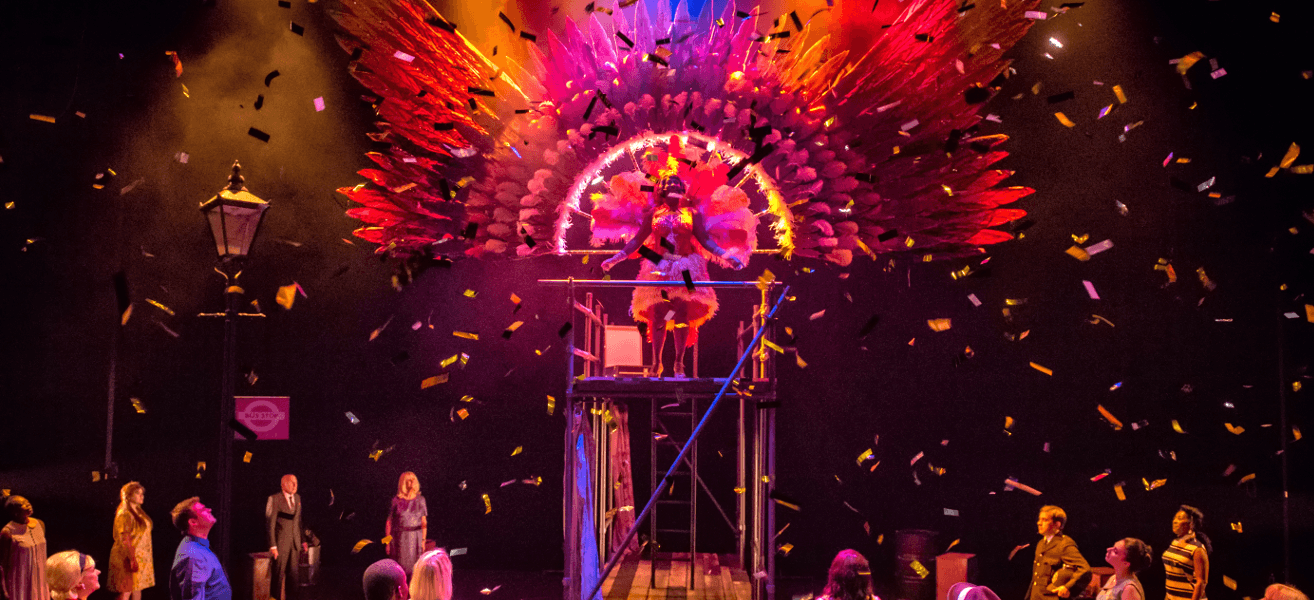Chloe-Louise Saunders investigates the beginnings of Leeds West Indian Carnival through West Yorkshire Playhouse’s performance of Queen of Chapeltown.
As Colin Grant’s Queen of Chapeltown reaches its climax, Elexi Walker flaunts a sparkling feathered dress against a jaw-dropping background. It is not only a bold and charming tableau, but a firm assertion of the importance of the Leeds West Indian Carnival.
While the play has plenty of charm and humour, the real heart of the production is its reminder of the importance of celebrating the culture that you come from. If you don’t acknowledge your ancestry and cultural heritage, one character says, “you are like a tree without roots”. Leeds West Indian Carnival is a celebration of the culture of West Indian immigrants to Leeds, and a display of Leeds’ transnational character. Through first-hand accounts from the founders of the carnival, the play tells the story of how the carnival was originally partly a reaction to the racial prejudice and lack of acceptance that many West Indians went through on moving to the UK.

These racial prejudices are shown and dealt with maturely by the play, whilst remaining hard-hitting and creating an uncomfortable atmosphere at times. Real recordings from the 1960s in which shop keepers claim that customers “wouldn’t like being served by coloured girls” highlighted the abominable attitudes which immigrants faced. These representations of societal prejudice assert the necessity of the carnival both back in the 60s, and in today’s society: a reminder that racism is still ingrained into our societal structures, despite those ignorant enough to believe that it is not.
The play creates the setting of 1960s Chapeltown, Leeds, with a bleak grey-washing of scenery. It was hard to completely realise the bleakness of the setting until the ending moments in which the colours and optimism of the carnival were glimpsed. And it was exactly this – a glimpse – which was all that was needed. While the play is about the carnival, it isn’t about the carnival. It is about recognising where you come from, and holding onto what makes you proud in the face of adversity.
Chloe-Louise Saunders
(Image courtesy of Anthony Robling)

